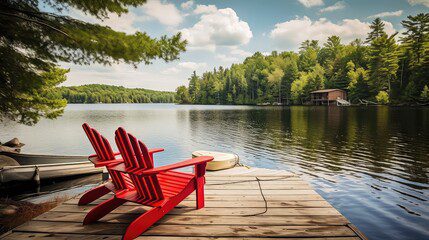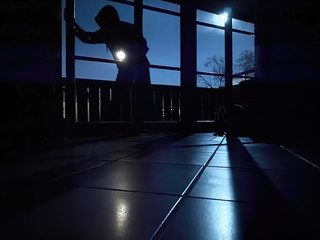As the land of 10,000 lakes and acres upon acres of beautiful rural areas, Minnesota has thousands of cabins. But while you’re away, your peaceful getaway could become a target for burglary or vandalism. Empty cabins can attract the wrong kind of attention, especially in the middle of the week or during the off-season. AAA Bail Bonds wants you to stay informed and protected. That means understanding how to secure your property, what the law says about breaking and entering in Minnesota – and the consequences someone could face for breaking those laws.
What Is “Breaking and Entering”?
In legal terms, breaking and entering refers to the act of unlawfully entering a structure such as a cabin, home, or garage. This can mean entering by force or even something as small as opening an unlocked door or window without permission. The legal definition doesn’t require actual “breaking” of glass or locks to be considered a crime.
In Minnesota, this action typically falls under burglary laws, which vary in degree based on circumstances like:
- Whether the building was occupied
- If a weapon was involved
- The intent behind the entry (theft, assault, vandalism, etc.)
Burglary in Minnesota
Minnesota categorizes burglary into first through fourth degrees, with varying penalties depending on the situation:
1st-Degree Burglary
- Involves entering a dwelling while someone is present, OR if the intruder is armed or assaults someone
- Classified as a felony
- Consequences include up to 20 years in prison and/or up to $35,000 in fines
2nd-Degree Burglary
- Involves entering a dwelling (even if unoccupied) or a business with tools to break into safes, or if the intent is theft
- Classified as a felony
- Consequences include up to 10 years in prison and/or up to $20,000 in fines
3rd-Degree Burglary
- Entering any building to commit theft or a felony (without aggravating factors)
- Classified as a felony
- Consequences include up to 5 years in prison and/or up to $10,000 in fines
4th-Degree Burglary
- Unlawful entry with intent to commit a misdemeanor (without intent to steal or cause serious harm)
- Classified as a gross misdemeanor
- Consequences include up to 1 year in jail and/or up to $3,000 in fines
For example:
If someone breaks into your cabin while you are away to steal your fishing equipment, it could be classified as a second or third-degree burglary, depending on the tools used or any aggravating factors.
If someone breaks in while you are there or threatens you with harm, whether they plan to steal or not, it is considered first-degree burglary.
If someone were to sneak into your cabin while you are away and use your boat without your permission, it would be fourth-degree burglary.
Theft and Robbery: What’s the Difference?
While burglary is focused on unlawful entry, robbery is a separate crime that involves directly taking property from a person using force or threat.
- Simple robbery: carries penalties of up to 10 years in prison and/or up to $20,000 in fines
- Aggravated robbery (with a weapon, implied weapon, or bodily harm): carries penalties of up to 20 years in prison and/or up to $35,000 in fines
 How to Keep Your Cabin Safe from Break-Ins
How to Keep Your Cabin Safe from Break-Ins
Whether you visit your cabin every weekend year-round, or only a few times during summer, here are smart steps to reduce your risk of break-ins:
✅ Lock All Entry Points
Use heavy-duty deadbolts on all doors and padlocks on outdoor storage. Even small windows should be locked before you leave.
✅ Install Motion-Sensor Lighting
Exterior lighting that activates when movement is detected can deter intruders.
✅ Add a Security System or Cameras
Even in remote areas, wireless security systems can monitor activity and alert you and the police in real time. Many systems include smart locks and live video.
✅ Keep Valuables Out of Sight
Don’t leave tools, electronics, or valuables visible through windows. Store them in locked containers or take them home when you leave.
✅ Let Neighbors Know You’re Away
If other cabins nearby are occupied, ask someone to keep an eye out or even drive by now and then.
✅ Use Timers for Lights Inside
Make it appear as though someone is home during evenings.
✅ Post “No Trespassing” Signs
Clear signage reminds potential intruders that your cabin is private property, and that unlawful entry carries consequences. This can also prevent any misunderstandings if someone tries to use your property for hunting or camping purposes.
Have You Been Arrested for Breaking and Entering?
Whether it’s a misunderstanding or a serious charge, being accused of breaking and entering or burglary is a serious legal matter. If you or a loved one is arrested, AAA Bail Bonds is here 24/7 to help you post bail and navigate the next steps. We work with families and individuals across Minnesota – including cabin country! – to provide fast, affordable bail services. Call us today at (612) 900-3400 to learn more about how we can help you!




